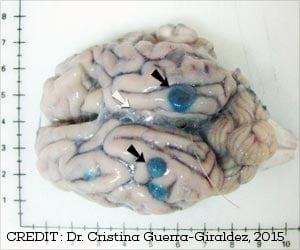Doctors should encourage the use of patient-derived xenograft, also called human-in-mouse models to inform future clinical trials for cancer treatment.

‘Patient-derived xenograft models, which use actual tumor tissue, reflect the heterogeneity of patients to a greater degree compared with traditional studies using cancer cell line models and also better represent the tumor subtypes.’





UNC Lineberger researchers believe their study adds further support for the importance of testing new therapies in preclinical animal models that use actual tumors from patients. They believe these preclinical models may better predict patient response, and can better prevent patients from receiving treatments that may not benefit them in clinical trials. "We believe our findings should encourage the use of patient-derived xenograft, also called human-in-mouse models, to inform future clinical trials," said Jen Jen Yeh, MD, a UNC Lineberger member and an associate professor and the vice chair for research in the UNC School of Medicine Department of Surgery. "If there''s no activity in these models, then perhaps we should rethink whether or not trials should be opened and patient-time wasted."
In the UNC Lineberger-led study, researchers were interested in studying metformin in pancreatic cancer because previous epidemiological studies had shown a decreased incidence of pancreatic cancer in diabetic patients taking metformin.
There has been a great deal of interest in harnessing this low-toxicity drug for cancer treatment.
"In addition, many preclinical studies using traditional animal models showed that metformin may have benefit against pancreatic cancer," said Yeh, who also has an appointment in the UNC Department of Pharmacology.
Advertisement
Yeh said that patient-derived xenograft models, which use actual tumor tissue, reflect the heterogeneity of patients to a greater degree compared with traditional studies using cancer cell line models, and also better represent the tumor subtypes that UNC Lineberger researchers, led by Yeh, recently identified in a study published in Nature Genetics.
Advertisement
"There were a lot of hints from previous studies that that this may be a very safe and well-tolerated way to treat pancreatic cancer," Yeh said. "But that''s not what our results found. We believe that the importance of our findings is that patient-derived xenograft models could and should be used in many cases to help predict drug response in patients."
The study was supported by the UNC Lineberger Comprehensive Cancer Center and the National Cancer Institute.
In addition to Yeh, other authors included: Matthew B. Lipner of the UNC Department of Pharmacology and of UNC Lineberger; Raoud Marayati of UNC Lineberger; Yangmei Deng of UNC Lineberger; Xianxi Wang of UNC Lineberger; Laura Raftery of ProHealth Care Regional Cancer Center in Waukesha, Wis.; and Bert H. O''Neil of the University of Indiana Division of Medical Oncology.
Source-Newswise














